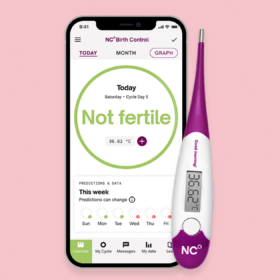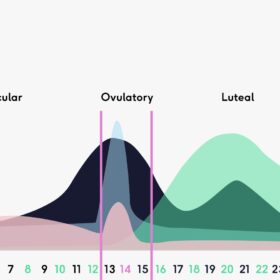
How do I delay my period?
In this article
What's the lowdown?
If you’re on a certain type of combined contraceptive pill, you can delay your period by taking more than one packet back to back.
For those not on the combined pill, a GP or pharmacist could prescribe you a medication called norethisterone or medroxyprogesterone which contains a synthetic progestogen hormone.
Norethisterone has a slightly higher risk of causing blood clots compared to medroxyprogesterone, but is safe for most people to use
Period delay tablets can affect your cycle
Certain forms of contraception, such as the injection or the hormonal coil, are known to make periods lighter or stop them altogether
Each month Mother Nature hands us a red notice to remind us that we’ve completed another month of not being pregnant. And whether you like it or not, she’ll be coming back for a while.
Whether you’re off on holiday, getting married or you just can’t face the cramps that month, you may want to delay your period. Yes – it is possible!
This handy guide covers ways to adapt how you take the combined pill to avoid a period, as well as period-delaying medications and contraceptives that can stop or decrease heavy periods for most people.
The combined pill
If you take the combined contraceptive pill, you can delay your period by taking two or more packets back to back. However, how you do this will be determined by which pill you take – so be sure to check first!
Monophasic 21-day pills (e.g. Microgynon, Cilest, Gedarel)
You take a combined pill for 21 days, followed by 4 to 7 days without pills, and it’s within this break that you have a withdrawal bleed like a period. However to avoid having a bleed you can start a new packet of pills straight after you finish the last pill to miss out the break. This is continuous or back-to-back pill taking and is a safe way to avoid a withdrawal bleed.
Everyday Pill (ED) (e.g. Microgynon ED and Femodene ED)
These every day (ED) pills include 21 active pills and 7 pills are inactive (or dummy pills). To avoid the withdrawal bleed, miss out the dummy pills, and start the active pills in a new packet straight away.
Phasic 21 day pills (e.g. Qlaira and Logyon)
The mix of hormones in phasic pills is different, depending on which part of the packet you’re in. You need to take these pills in the correct order to have effective contraception. We don’t advise using these types of pill back-to-back.
It’s reassuring to know that taking your contraceptive pills as above will not affect how they work as contraceptives, so you will still be protected. In fact, taking your combined pill back to back may be more effective. If you are unsure which pill you are on, speak to your pharmacist or GP.
Period delay tablets
If you are wanting to delay your period, and you are not on the combined contraceptive pill, then you will need to speak to your GP or use an online pharmacy service. They could prescribe you medications which contain a synthetic progestogen hormone.
You will normally be prescribed one tablet three times a day of norethisterone, starting three days before you expect your period to begin and your period should arrive two to three days after you stop taking the medication. Sometimes your period may be heavier after delaying it using these types of tablets.
Norethisterone is normally safe to take but for some people who have risk factors for blood clots may need the alternative. Risk factors for blood clots include:
- Smoking
- A family history of blood clots
- A BMI over 30
- Long term immobility, for example a wheelchair user
The alternative is called medroxyprogesterone (brand name Provera), and is also taken three times a day, starting 2 to 3 days before your period, holiday or event.
It’s important to note that norethisterone and medroxyprogesterone do NOT act as a contraceptive when used in this way, so you will need to make sure you have contraception or use condoms to avoid pregnancy.
Some side effects of norethisterone can include:
- Breast tenderness
- Nausea
- Headaches
- Changes in mood and sex drive
Which contraception can reduce periods or stop them?
Certain forms of contraception, such as the injection or the hormonal coil, are known to make periods lighter or stop them altogether (of course, this isn’t the case for everyone). Some people find that their periods are lighter or stop altogether with the progestogen-only contraceptive pill or implant, but it can vary. Some people even have the opposite effect with spotting throughout their cycle.
If you want to delay your period each month, it might be worth looking into a different contraceptive that may do this.
Our medical review process
This article has been medically reviewed for factual and up to date information by a Lowdown doctor.





